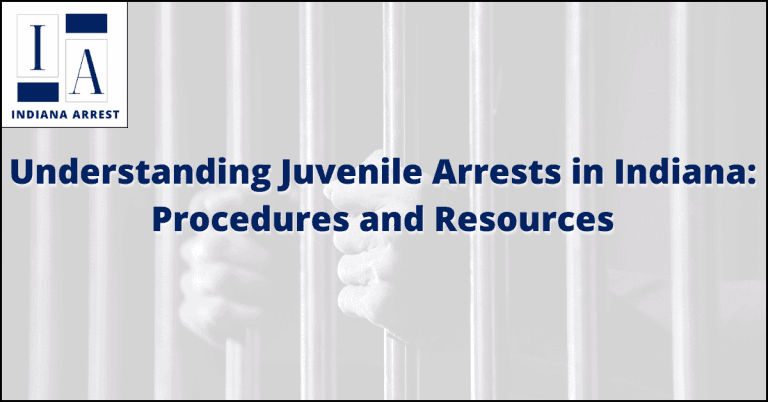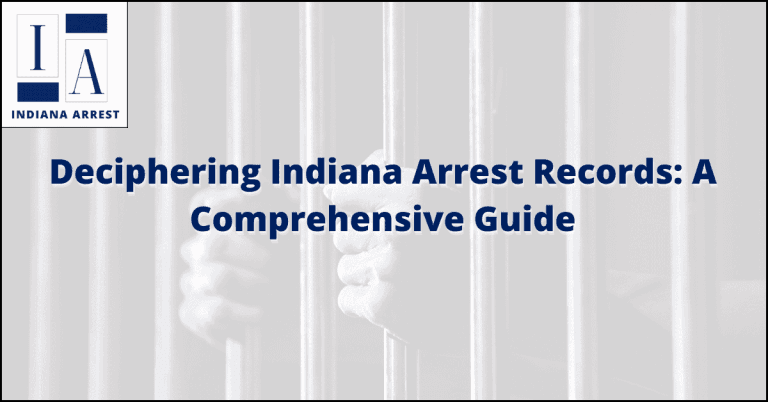Indiana Arrests’ Legal Rights: A Comprehensive Guide
When an individual faces arrest, being aware of their rights becomes paramount to uphold a fair and just legal process. In the state of Indiana, similar to the broader United States, arrested individuals are granted specific rights and protections. These rights not only ensure the dignity of individuals but also maintain the credibility of the legal system. In this comprehensive article, we delve into the rights afforded to arrested individuals in Indiana, shedding light on the fundamental safeguards that the state provides to guarantee due process.
Navigating the intricacies of Indiana’s criminal justice system can be challenging, making a clear comprehension of your rights pivotal. The following sections offer insights into the rights bestowed upon arrested individuals in Indiana, empowering you with the knowledge needed to navigate this demanding situation effectively.
Understanding Miranda Rights
Among the most critical rights is the Miranda warning, which safeguards an individual’s right to remain silent and to consult an attorney. These warnings are typically read during arrests and ensure that individuals are aware of their legal protections during questioning.
The Right to Remain Silent
Linked closely to Miranda Rights, the right to remain silent protects arrested individuals from self-incrimination. By exercising this right, individuals can avoid providing information that might later be used against them in court.
The Right to Legal Counsel
Arrested individuals have the right to legal representation. This ensures that you can consult an attorney before answering any questions during an interrogation. Having an attorney by your side helps navigate complex legal matters and safeguards your rights.
Search and Seizure Rights
Protected by the Fourth Amendment, individuals in Indiana, as elsewhere, are shielded from unreasonable searches and seizures. Law enforcement must generally possess a valid search warrant or probable cause to conduct a search.
Understanding Probable Cause
An essential component of any lawful arrest, probable cause entails a reasonable belief that a crime has been committed. It serves as the basis for initiating legal proceedings against an individual.
Safeguarding Due Process Rights
Due process ensures that arrested individuals are treated fairly under the law. This encompasses various rights such as the right to a speedy trial, the right to present evidence, and the right to challenge witnesses.
Bail and Release Options
Following an arrest, individuals have the right to request bail. This allows them to be released from custody while awaiting trial. Bail amounts are typically determined based on the nature of the offense and the individual’s flight risk.
FAQS
What are my rights if I am arrested in Indiana?
If you are arrested in Indiana, you have the right to remain silent and not incriminate yourself. You also have the right to an attorney; if you cannot afford one, a public defender will be provided. Additionally, you must be informed of the charges against you and have the right to a prompt hearing before a judge.
Can I refuse a search during an arrest in Indiana?
Yes, you can refuse a search of your person, vehicle, or home if the police do not have a warrant. However, there are exceptions, such as if the police have probable cause or if you are in a vehicle and they believe evidence is at risk of being destroyed. Always clearly state your refusal to consent to a search.
What if my Miranda Rights aren’t read during an Indiana arrest?
If law enforcement fails to read your Miranda Rights, any statements you make during questioning might be inadmissible in court. However, the overall case might not necessarily be invalidated.
Can I get an attorney if I can’t afford one?
Absolutely. If you can’t afford an attorney, one will be appointed for you. This ensures proper legal representation throughout the legal proceedings.
How is bail determined in Indiana?
Bail amounts in Indiana are generally determined based on factors like the severity of the offense, the defendant’s criminal history, and the likelihood of them fleeing. The goal is to set a reasonable amount that guarantees the defendant’s appearance in court.







